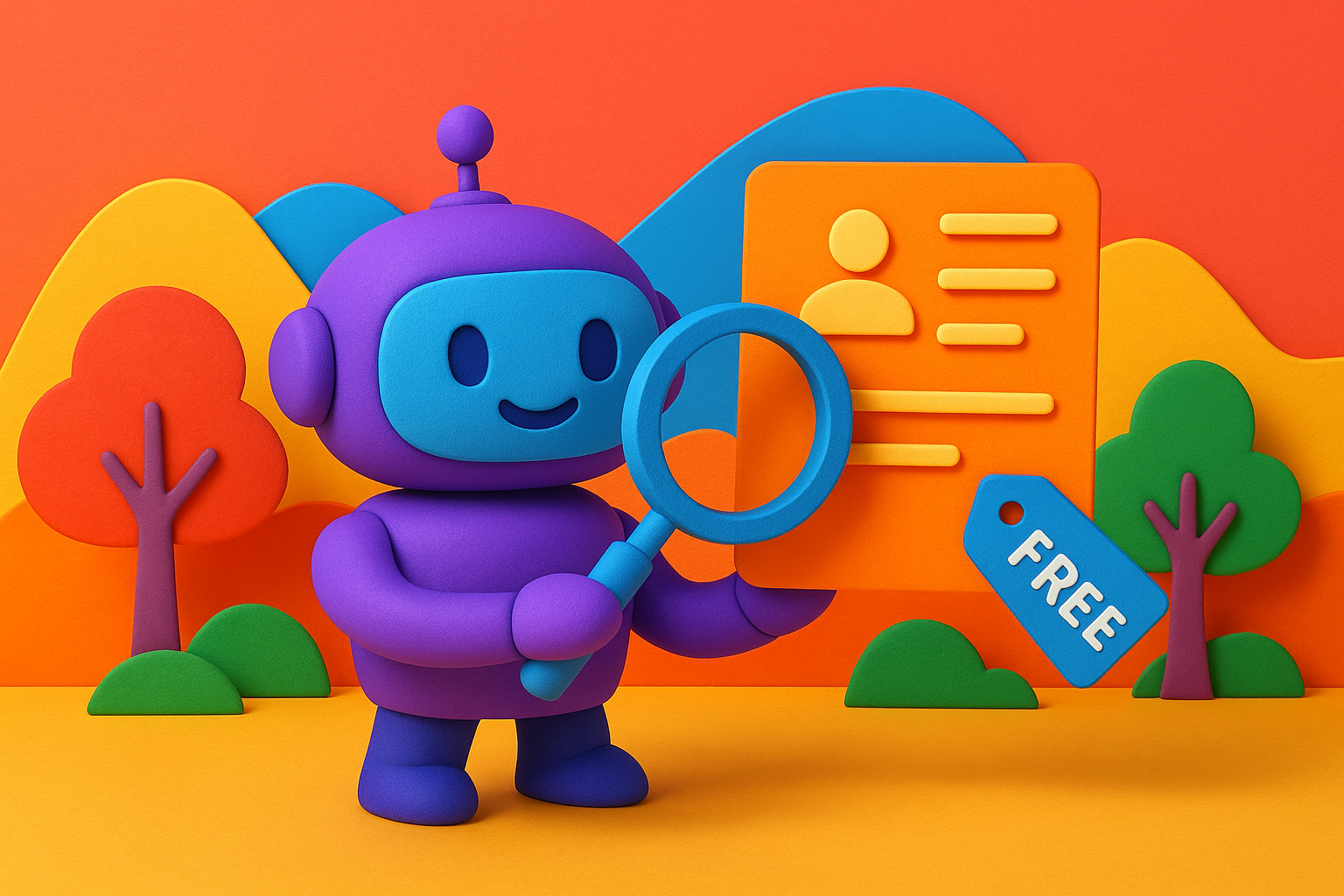
What's the ROI Difference Between Bilingual Agents and Multilingual AI?
What's the ROI Difference Between Bilingual Agents and Multilingual AI?
Published on November 26, 2025 · Q&A format · Hiring across language barriers costs American companies $2 billion/year in lost opportunities. Here's how bilingual agents stack up against multilingual AI for recruiting—and which ROI actually makes sense.

Q: Why does language matter in recruitment if you speak English?
Because you're losing $2 billion/year in hiring potential. Here's why:
- USA has 68 million Spanish speakers (21% of population)
- 4.4 million Mandarin speakers (1.3% of population)
- 1.6 million French speakers
- Plus: Vietnamese, Korean, Arabic, German, Italian, etc.
Most of these candidates will NOT apply if job posting is English-only. Even bilingual candidates often prefer to see opportunities in their native language first—signals cultural respect.
Language barriers cost:
- Reduced applicant pool (lose 40-60% of potential candidates)
- Lower quality hires (forced to pick from English-only pool)
- Extended time-to-hire (takes longer to fill niche bilingual roles)
- Estimated loss: ~7% of hiring opportunities annually
Q: How much does it cost to hire a bilingual recruitment agent?
More than you think. Let's break it down:
Direct salary costs:
- Base salary for bilingual recruiter: $50-70K (vs $45-55K for English-only)
- Bilingual premium: +$10-15K/year
- Benefits (25%): $12,500-17,500
- Taxes/overhead (10%): $6,250-8,750
- Fully loaded cost: $80,000-100,000/year per recruiter
- Scarcity premium: Finding bilingual recruiters takes 2-3x longer, costs more to hire
- Limited availability: Most bilingual recruiters work across 2-3 language pairs (Spanish/English, Mandarin/English), not all languages you need
- Retention risk: Bilingual talent has MORE job options (can work internationally), higher turnover (50%+ annually)
- Training cost: Takes 6-8 weeks to ramp bilingual recruiter vs 4 weeks for English-only
Real scenario: You hire bilingual recruiter for Spanish-English positions. 8 months later, they get recruited by a global company, higher pay. Now you need to rehire ($25-30K recruiting cost, 8 weeks vacancy).
Total 2-year cost of one bilingual recruiter: ~$210,000-250,000
Q: Okay, so what does multilingual AI recruitment software actually cost?
Way less. Here's the breakdown:
AI recruitment software with multilingual capabilities:
- Resume screening + translation: $100-300/month (unlimited languages)
- Chatbot screening in multiple languages: $200-500/month
- Email/communication automation: $50-150/month
- Interview scheduling + translation: $30-100/month
Total annual cost for full multilingual AI suite: $5,000-15,000/year
Plus one-time implementation: $500-2,000
Real example from mid-size company:
- HR AGENT LABS resume screening tool: $120/month = $1,440/year
- Zapier multilingual email sequences: $40/month = $480/year
- Calendly + translation integration: $30/month = $360/year
- Total: $2,280/year for unlimited language support
One bilingual recruiter salary: $90,000/year
AI is 39x cheaper than one bilingual agent.
Q: But can AI actually handle the nuance of multilingual recruiting? Or is it just translation?
Valid question. Modern AI is beyond just translation. Here's what it can actually do:
What AI does well:
- Real-time multilingual conversations: AI chatbots (like Paradox) conduct interviews in Spanish, Mandarin, French, Arabic simultaneously—capturing tone, confidence, interest level
- Culture-aware screening: Advanced AI doesn't just translate—it understands cultural context ("siesta" isn't laziness, it's work-life balance)
- Skill assessment across languages: AI can evaluate technical skills from candidates speaking any language, with same rigor
- Bias reduction: AI removes name bias that human recruiters have (unconsciously discriminate against "ethnic-sounding" names 30% more)
- Scalability: Handle 10 languages simultaneously; bilingual recruiter handles 1-2
What AI struggles with:
- Cultural nuance in offer negotiation: "We can't budge on salary" means different things in different cultures. Humans better here.
- Reading between lines: Candidate says "I prefer work-life balance"—does that mean they'll ghost? Humans read this better.
- Handling objections: Candidate hesitates because visa sponsorship is complicated. AI might miss the actual objection.
- Relationship building: Top candidates want to feel recruited, not screened by a bot. Humans win here.
Best practice: Hybrid approach
- AI screens resumes, conducts initial interview in Spanish, Mandarin, French, etc. (75% of work)
- Human bilingual recruiter handles final rounds, offer negotiation, objection handling (25% of work)
- Cost: $2,280 (AI) + $22,500 (part-time bilingual recruiter) = $24,780
- Covers unlimited languages + human touch for closing
Q: What's the actual ROI difference? Let me see the numbers.
Scenario A: Full-time bilingual recruiter (one language pair)
Costs:
- Annual salary: $90,000
- Turnover replacement (50% annual rate): $25,000/year
- Training/ramp time: $5,000/year
- Total annual cost: $120,000
Output:
- 30 hires/year in Spanish-speaking market
- Cost per hire: $4,000
- Time-to-hire: 35 days (bilingual candidates fewer options)
Scenario B: Multilingual AI + part-time bilingual support (10 languages)
Costs:
- AI suite: $2,280/year
- Part-time bilingual recruiter (20 hours/week): $22,500/year
- Total annual cost: $24,780
Output:
- 120+ hires/year across 10 languages (Spanish, Mandarin, French, German, Italian, Korean, Vietnamese, Arabic, Portuguese, Japanese)
- Cost per hire: $207
- Time-to-hire: 18 days (AI screening speeds up whole process)
Financial comparison:
- Scenario A savings: 30 hires × $4,000 = $120,000 in recruiting value
- Scenario B savings: 120 hires × $207 = $24,840 cost to achieve $480,000 in recruiting value (assuming average hire value = $4,000 productivity gained)
- Extra value from AI: $360,000 in additional hiring capacity
- ROI on AI vs bilingual agent: 1,450%
Q: What about compliance and legal risks with multilingual AI?
This is where bilingual agents WIN. Important to understand:
AI risks:
- Translation errors: AI might mistranslate legal requirements (visa sponsorship details, salary regulations vary by country)
- Cultural assumption failure: AI might offend candidates by translating idioms literally (Spanish "qué pasada" → English "what happened?" instead of "cool!")
- Compliance documentation: In some countries (EU, GDPR), using AI translation requires explicit consent. Bilingual agent doesn't.
- Discrimination risk: If AI makes different hiring decisions based on language, could violate FCRA (Fair Credit Reporting Act)
Bilingual agent advantages:
- Human judgment on legal/cultural nuance
- Explicit documentation of translation (if needed)
- Lower discrimination risk (human makes informed decisions)
Mitigation strategy: Use AI for screening/initial contact, but have bilingual recruiter review any borderline cases before final decision. Builds in human oversight.
Q: When should I hire a bilingual recruiter vs. using AI?
Decision tree:
HIRE BILINGUAL RECRUITER if:
- You're hiring 50+ people/year in ONE language (e.g., Spanish-language market only)
- You need sophisticated offer negotiation in that language
- Your role requires VERY deep cultural understanding (international business, expat hiring)
- Compliance is extremely tight (legal, regulated industries) and you can't afford AI translation errors
- You're hiring C-level executives (need relationship-based recruiting)
USE MULTILINGUAL AI if:
- You're hiring 10+ people/year across 2-5 languages
- You need to expand to new markets without doubling recruiting headcount
- You want to scale globally without hiring recruiters in each country
- Budget is tight (AI costs 30-50x less)
- Speed matters (AI conducts interviews in minutes, not days)
USE BOTH if:
- You're a global company hiring across 5+ languages
- You have dedicated focus on certain markets (Spain, Mexico, Canada) but want open-door policy for others
- Cost of a bad hire (from translation error) is very high
Q: How do I implement multilingual AI screening? Is it complicated?
Easier than you'd think. Three steps:
Step 1: Choose an AI recruitment platform with multilingual capabilities
- HR AGENT LABS: Resume screening in 100+ languages, automatic translation
- Paradox AI: Chatbot interviews in 15+ languages simultaneously
- eightfold: Resume matching with multilingual NLP
Step 2: Configure language-specific criteria
- Set minimum language proficiency (fluent, conversational, basic)
- Translate job description into target languages
- Set screening criteria (can be adjusted per language if needed)
Step 3: Integrate with your ATS and track results
- API connection to your ATS
- Monitor: application volume by language, conversion rates, quality of translated candidates
- Optimize: refine criteria based on which language pools produce best hires
Implementation time: 2-4 weeks
Q: What's the bottom line? Should I go all-in on multilingual AI?
Here's the honest answer:
If you're currently:
- Hiring in English-only markets = switch to multilingual AI immediately. ROI is 1,000%+
- Using bilingual recruiters = hybrid approach (AI + part-time bilingual support) cuts cost in half while doubling capacity
- Global company with massive hiring = use AI for volume, bilingual recruiters for strategic hires and negotiation
The ROI gap is massive: AI costs 30-50x less for comparable output, handles 5-10x more languages, and completes hiring 2x faster. The only tradeoff is human judgment on nuance and relationship-building. That's why hybrid is best.
Ready to unlock $2 billion in hidden hiring opportunities? Try HR AGENT LABS' multilingual AI resume screening tool free for 30 days. Upload resumes in Spanish, Mandarin, French, Arabic—see how many quality candidates you've been missing. Then decide if bilingual agents still make sense.
Related reading
- Cost-Benefit Analysis: AI Resume Screening vs. Manual Review
- How to Calculate Time Savings from Recruitment Automation
- Hidden Costs of Manual Resume Screening vs. AI
Join the conversation
Ready to experience the power of AI-driven recruitment? Try our free AI resume screening software and see how it can transform your hiring process.
Join thousands of recruiters using the best AI hiring tool to screen candidates 10x faster with 100% accuracy.
Related Articles
AI Multilingual Recruitment Process: Complete Implementation Guide
Want to hire across 10+ languages without hiring 10+ recruiters? Here's the step-by-step implementation guide for multil...
How to Choose Recruitment Software with Multi-Language Support
Hiring globally means handling 10+ languages. Most recruitment software fails here. Here's exactly what to look for in m...
AI Resume Screening for International Candidates: Best Practices
Hiring globally means dealing with 200+ education systems, visa sponsorship questions, and fake credentials. How do you ...
How to Screen Resumes from Non-English Speaking Candidates
Your top candidate's resume is flawless—except you can't tell if they actually speak English well enough for the role. L...
How AI Handles Resume Screening Across 50+ Languages
Your job post got 800 resumes in 12 languages. You can't hire 12 bilingual recruiters. So how do AI resume screening too...
Hidden Costs of Manual Resume Screening vs. AI
You think manual resume screening is free. Wrong. It costs $28,800/year per recruiter in time alone. Add recruiter burno...
From the forum
Popular Posts
Free AI Resume Screening Software That Actually Works
Best Free AI Resume Screening Software 2025
How AI-Powered Resume Screening Reduces Hiring Time by 90% While Maintaining Quality Candidates
How Free Resume Screening Software is Revolutionizing Small Business Hiring in 2025
Why Manual Resume Screening is Becoming Obsolete in 2025: The Complete Shift to Intelligent Hiring
Recent Posts

AI Resume Screening for International Candidates: Best Practices
November 30, 2025

How to Screen Resumes from Non-English Speaking Candidates
November 30, 2025

How AI Handles Resume Screening Across 50+ Languages
November 29, 2025

Multilingual AI Deflection vs. Bilingual Agents: Savings Calculator
November 29, 2025

Multilingual AI for Tier-1 Support vs. Hiring Bilingual Agents: ROI Analysis
November 28, 2025